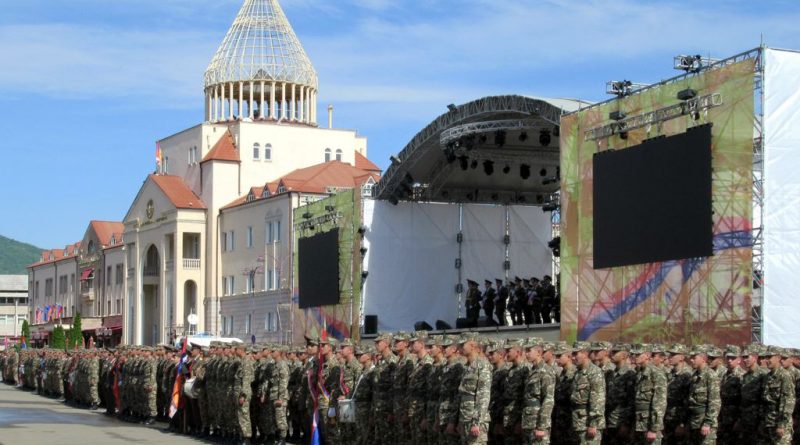Failed Negotiations Threaten to Reignite Nagorno-Karabakh Conflict
Joshua Newman
Staff Writer
Armenian-Azerbaijani negotiations over the disputed Nagorno-Karabakh region are reportedly at a standstill, according to New Eastern Europe. Azerbaijani Foreign Minister Elmar Mammadyarov addressed the UN General Assembly on September 28, stating that the negotiations had made no progress. He added that “negotiations cannot last forever,” hinting at a possible next round in an already 3-decade long ethnic conflict.
While Azerbaijan’s political community shares the foreign minister’s views on conflict de-escalation, Armenian leadership changed their previously positive rhetoric midway through the latest round of negotiations. When Armenian President Ilham Aliyev and Azerbaijani Prime Minister Nikol Pashinyan first met on September 28, both leaders ‘vowed to de-escalate tensions and create a direct hotline between the two sides’, according to New Eastern Europe. However, former Armenian National Security Director Arthur Vanetsian later declared “No one will surrender even an inch of land,” and Prime Minister Pashinyan called for the absorption of Nagorno-Karabakh into Armenia.
Armenian political leadership is not alone in their provocative rhetoric. President Aliyev himself stated that the concept of “the people of Nagorno-Karabakh” does not exist, according to AzerNews. In this same speech, President Aliyev noted Armenia’s failure to comply with four UN Security Council resolutions for more than 25 years and its ethnic cleansing of Azerbaijani people in the “occupied territories of Azerbaijan.”
These recent escalating tensions are nothing new, but rather the reopening of old wounds. The Economist says that although Azerbaijan and Armenia’s long history of conflict over the Nagorno-Karabakh conflict formally began in the early 1990’s, their divide runs even deeper. Azerbaijan shares an ethnic identity with neighboring Turkey, the same country responsible for the disputed 1915 Armenian genocide.
This history only makes the recent flare-up in tensions all the more concerning, reports Emerging Europe, especially considering the intensity of the conflict only three years ago, during the April War of 2016. Armed confrontations between Azeri and Armenian forces killed over a dozen and wounded many more in the nearly four days of fighting, according to Geopolitical Futures. Given the rhetoric of Armenian and Azerbaijani leaders and the history of the region, an escalation to full-scale conflict is a serious possibility.
The strategic significance of the region Armenia and Azerbaijan inhabit – the Caucasus – also makes this rise in tensions concerning. A new conflict in the Caucasus could have far-reaching effects on international politics. Though the region is often ignored by the West, it is a strategically important location to Russia, Turkey, and Iran.
The Nagorno-Karabakh region is not the only historically volatile region in the Caucasus. The stability of Russian-controlled northern Caucasus is debatable, given ongoing conflicts in the predominantly Muslim regions of Chechnya and Dagestan. In addition, ongoing frozen wars between the South Ossetia and Abkhazia regions of Georgia culminated in Russian intervention in the 2008 Russo-Georgian War.
For civilians, the souring turn in diplomatic relations may be disappointing, but it is not surprising. Since hostilities began in 1988, more than 3,000 Armenians and Azerbaijanis have died and at least 1.2 million people were displaced and took refuge in Azerbaijan. Violence has become so normal that civilians report that they “get used to being shot at.” An anonymous citizen told interviewers, “I haven’t even thought about what my life would be like without the conflict.”
However, there might still be hope for the people of Nagorno-Karabakh. One Azerbaijani interviewee suggested to Emerging Europe that because people on both sides of the conflict once coexisted peacefully, there is still the potential for change. “We used to live with Armenians very well. So why not live together again?”

